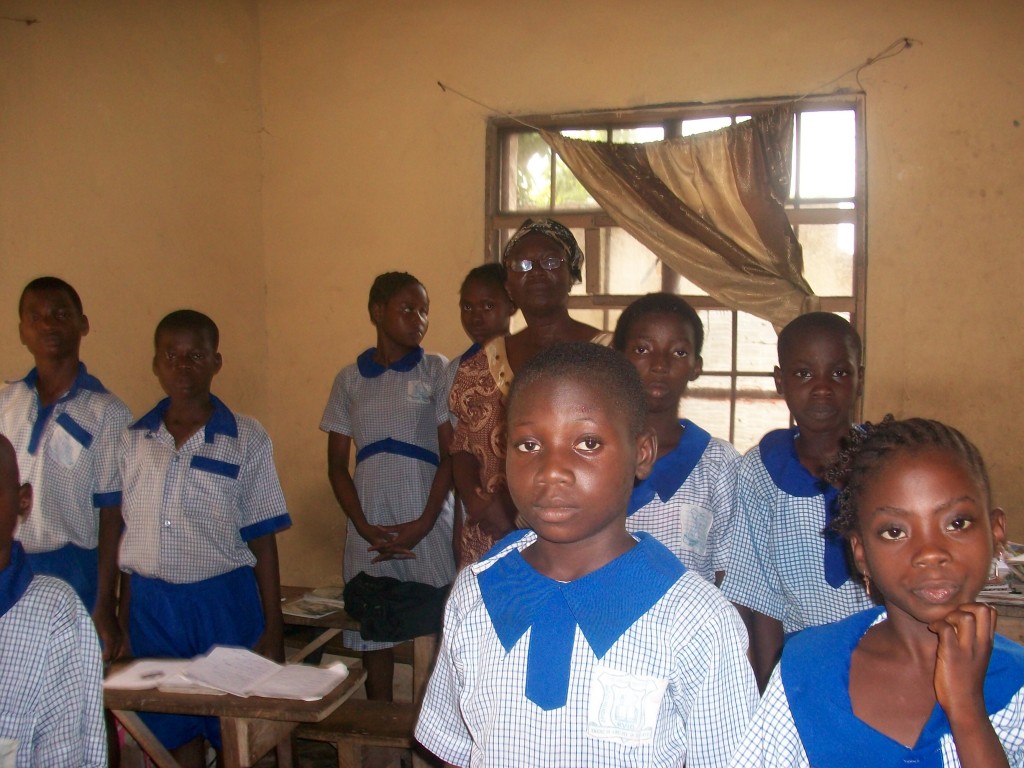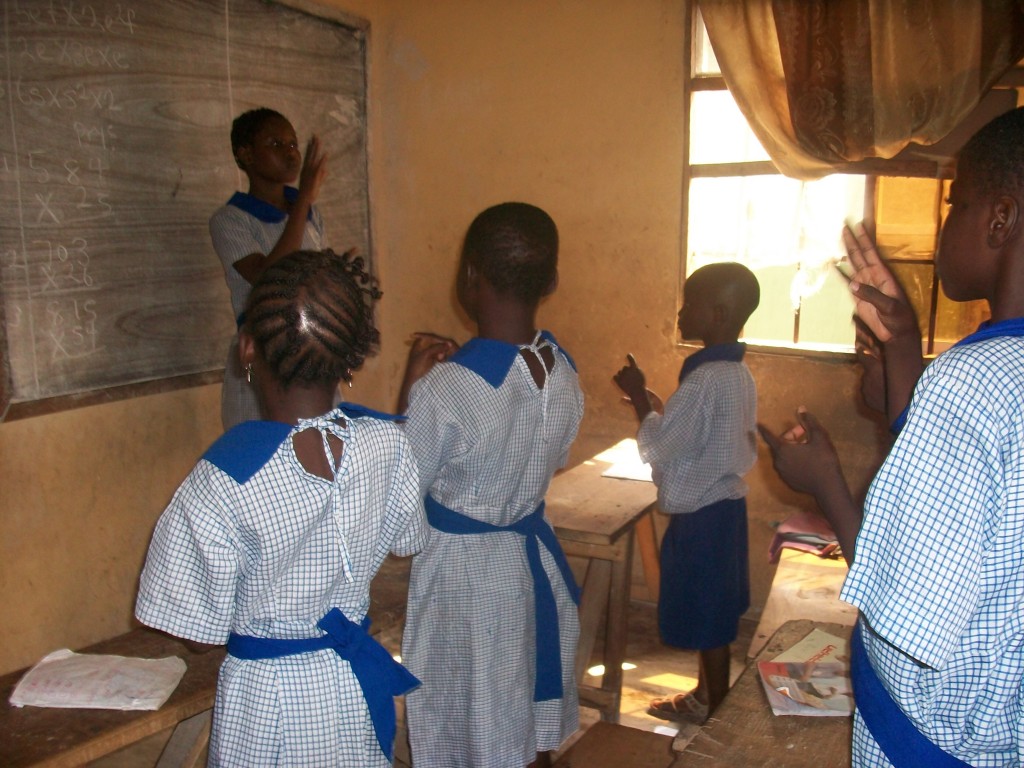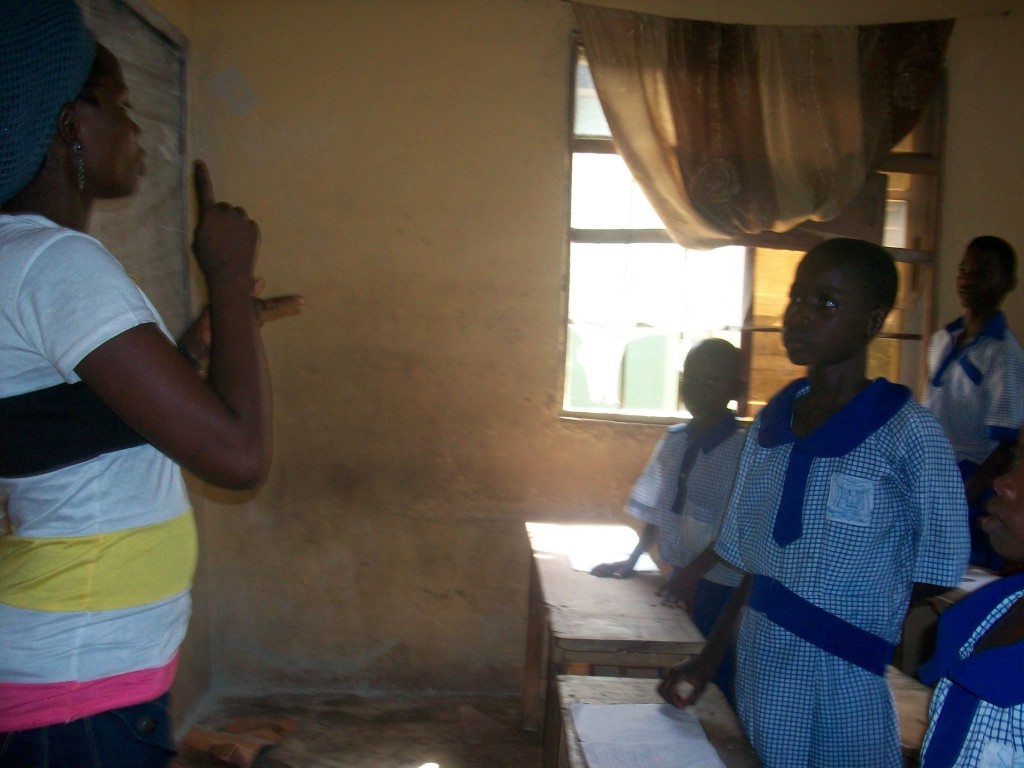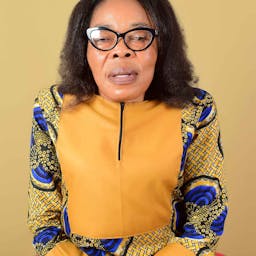The Impressive Determination of a Life Changer
Jan 21, 2015
Story




Beyioku-Alase’s story stands out as one of both significant heartache and remarkable resolution. Mother of a 27-year old deaf son, neither she nor her son was born deaf. She became deaf in 1974 through injection. In 1985, while still battling with her own trauma, adjusting to a life in a new, challenging world, her first son became deaf through measles. Her husband attributed her son’s disability to her evil luck and wanting separation from. He married another wife and asked her to leave his house. Despite pleas from family relatives, her husband insisted. “That was the man whom I had confided in,” she recalls regretfully.
Instead of resigning to a life of self-pity and agony, she developed passion to fight to improve the lives of deaf persons. “I told my husband that even if he takes my other three children; he should leave my deaf son for me.” As she left her matrimonial home with her four children, she was homeless. When her husband later died, no piece of his property was given to her and her children. Reminiscing about her past life, she simply looks to a wall where her late husband’s photo is hanging and says, “I wish my husband would still be alive to see what my son is today”.
All you need do is just ask any pedestrian, market vendor, school-child, bus or motorbike driver in Meiran, a suburb of Lagos, you surely get to her. “I am a mother of the deaf, catching them young, caring for them, preparing and moulding them in the most important ways” are the inspiring and motivating words of a woman whose absolute resolution is changing the plight of the neglected. What strikes me most is her courage. The rugged and treacherous path one must travel to her rather inaccessible place suggests the many challenges she surmounts in her everyday activities.
“You met me reading a newspaper. Every day I sacrifice my food to buy a newspaper to keep myself informed because I cannot listen to radio or television”, she says, alluding to isolation, poverty and neglect as major plights of deafness. Imagine a child who grows up neither knowing the voice nor the names of the parents. The child knows not the number and name of the street where she lives because he or she lacks the basis to pick sounds. Such isolation and challenges, she says can result in a deaf person becoming irritable and aggressive. This unfair and unacceptable situation is precisely what Beyioku-Alase is changing. In 2001, she formed an advocacy organization: the Deaf Women in Nigeria. The organization brings deaf women and their families together, provides counseling and serves as a channel for relationships between the deaf and non-deaf.
Now considered an expert in rehabilitation, counseling and teaching she has established an educational institute, the Brighter Future School for the Deaf, the second of its kind in Lagos. The institute offers a learning space to children who are otherwise denied educational opportunities. Inside, I counted 25 children beaming with smiles, welcoming me in sign language, which I only understood through the intervention of an interpreter. In this special setting, children are taught Sign Language, Mathematics, English and Social Studies. Forums are also created for co-interaction with other children. To Beyioku-Alase, education is a panacea for the deaf. It offers the gift of communication and self-expression: “what they cannot say, they will be able to write”, she says.
Children who have passed through the tutelage of Beyioku-Alase are doing well in their various homes and work places, proving the point that with education, a deaf person can live a normal life. Her deaf son teaches Mathematics in a school in Abuja. He recently got married before a party of 100 people. She regrets that most parents think a deaf child has no chance at a normal future hence they are often reluctant to release their deaf children to come to school. She fights to change this through networks with parents and the general public. She creates awareness and educates the community on the critical importance of education to the deaf.
Yet, to Beyioku, the inclusive education policy of Lagos State, which puts children with different disabilities in the same class, does not adequately provide for children with hearing loss. She argues that deaf children are unique. They often learn best by copying the skills or behaviours of those around them. Schools should put them in same classes with intelligent, non-disabled children so that they can pick up new lessons fast. Her other major concern is that teachers in schools typically are not knowledgeable in sign language. They cannot effectively teach children with hearing loss, making it all the more important that non-disabled children are in the room to model lessons for the hearing loss.
A UNDP study indicates that women with disabilities experience double discrimination, which place them at higher risk of gender-based violence, sexual abuse, neglect, maltreatment and exploitation. In Nigeria, patriarchy, insecurity and poverty promote this subjugation. Beyioku-Alase affirms that deaf women experience violence in more unique ways. The combination of challenges associated with being a woman and deaf breed negative treatments and disadvantages of all kinds. Imagine a girl who cannot communicate her experience when she is raped by her father, brother, neighbour or teacher. The Deaconess shares her experience in one of her home interventions where family members, including mother-in-law use a deaf daughter-in-law as veritable domestic slave. A physical abuse meted on her one day triggered chaos in the home, thankfully resulting in the Deaconess being invited to intervene as mediator.
In the homes of deaf women, on the street, through the length and breadth of her community and around Nigeria, Beyioku-Alase leaves her footprints in the sands of time. She is a well-known and respected mobilizer and advocate. In her church, her outstanding contributions have earned her the honor of Deaconess. She trains women in nylon and bead-making, affording them opportunity to gradually break free from economic dependency.
This article is part of a writing assignment for Voices of Our Future a program of World Pulse that provides rigorous new media and citizen journalism training for grassroots women leaders. World Pulse lifts and unites the voices of women from some of the most unheard regions of the world.




